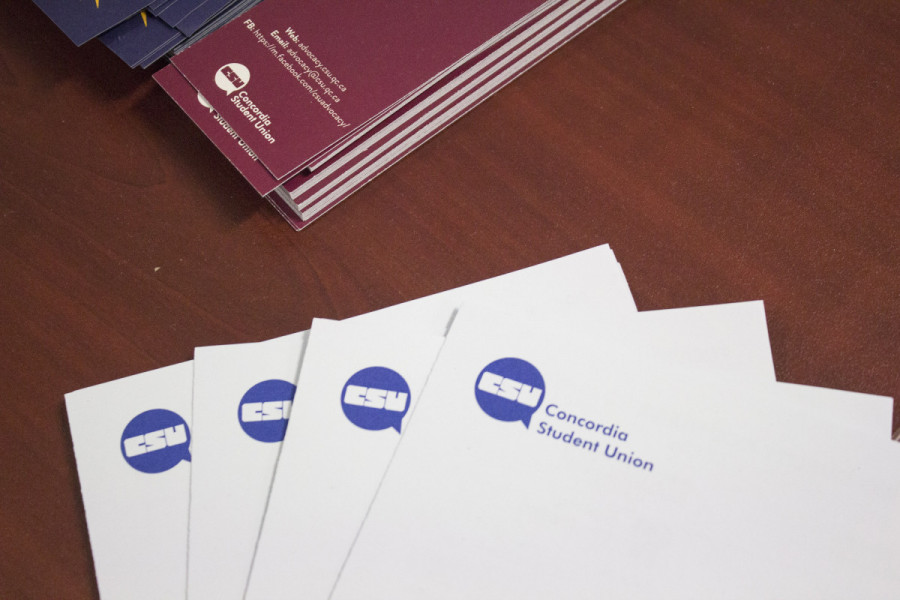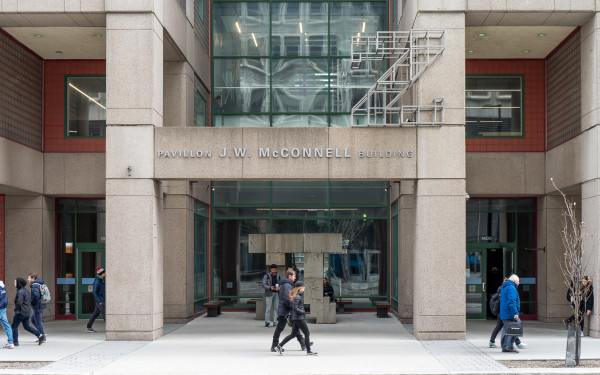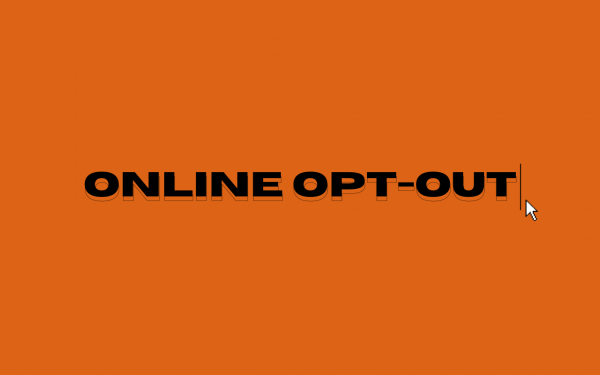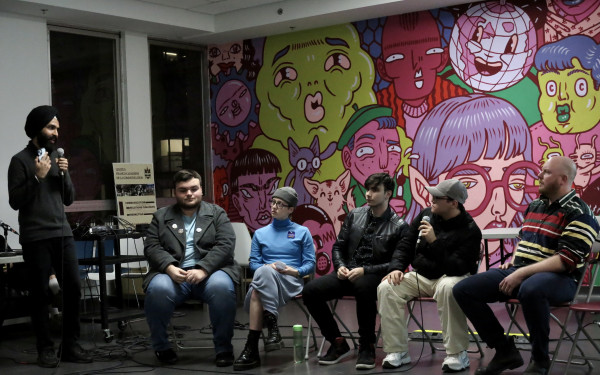Online Opt-Out Motion Tabled Indefinitely
Fee-Levy Consultation Report Approved by CSU Council in Separate Vote
Following a drawn-out and divided discussion, Concordia Student Union councillors deferred a motion presented by councillor James Hanna that would have approved a fee-levy consultation report, formally endorsed online opt-out, and instructed the executive to implement the system for fall 2020.
The report itself was separately approved during the May 13 meeting, but Hanna’s motion to launch implementation was tabled indefinitely in an 11-10 vote.
Student life coordinator Eduardo Malorni was quick to mention the recently surfaced emails, which added to the distrust felt by fee-levy groups surrounding general coordinator Christopher Kalafatidis and academic and advocacy coordinator Patrick Quinn.
“No one wants to work with Chris and Patrick,” Malorni said, referring to fee-levy groups who have spoken with him.
Malorni, alongside some councillors, wanted to table the motion so the CSU executive team could have more time to properly complete the consultations.
Several fee-levy groups were not included in the report as they did not respond to a Google Doc survey that gave two weeks or less during the pandemic to provide written answers. A successful January motion had specified that fee-levy groups would be interviewed.
Malorni and external coordinator and general coordinator-elect Isaiah Joyner would like to speak with all groups before handing the report to the administration to guarantee the process is properly executed.
Supporters in council feel the process has taken more than enough time given that online opt-out passed with 61 per cent of the vote in November 2019.
“This can’t be stalled any longer,” said councillor James Hanna. “We need to act now and mandate the executives to get this done before the fall.”
The referendum question did not specify a timeframe and had called for the system to be created in consultation with all fee-levy groups.
Joyner, whose mandate as general coordinator begins June 1, thinks it’s better that council does its due diligence. “Stuff takes time,” he said. “Although students want it, it needs to be done properly.”
“No one wants to work with Chris and Patrick.” —Eduardo Malorni
The incoming and outgoing general coordinator’s disagreement on the implementation of the opt-out was outlined in a now-deleted open letter written by Kalafatidis and Quinn.
“I’m disappointed we’re losing track of why we’re here. We’re here to represent all students,” said Kalafatidis. “Saying [‘things take time’] is the most ridiculous thing I’ve ever heard.” He argued dragging on the process won’t help, calling it a stalling tactic.
“I find it interesting that the GC would attack a fellow exec for saying ‘things take time’ when he’s used the same excuse [all the time when we’ve asked him to get work done],” said councillor Maha Siddiqui.
“The world doesn’t revolve around fee-levies,” said Quinn. “It revolves around the 35,000 students. Online opt-out is a wish of the students.”
Malorni suggested to councillors that tabling the motion until all fee-levies can be consulted wouldn’t set back the fall 2020 implementation date. According to him, a minimum of one month’s extension would allow them to consult with the remaining fee-levy groups—approximately half of them.
“It will still be passed,” he emphasized, “but only after fee-levies have been consulted and they have a say on how things turn out.”
“We’re trying to look after everybody’s needs, not just the majority,” said Joyner. He alluded to how the report includes only 13 out of at least 22 fee-levy organizations. “I can’t even bring that grade home to my mom, much less to the 35,000 students who we represent.”
To councillor Tzvi Hersh Filler, charging a fee levy is “inherently unethical” because it’s being added automatically to a student’s tuition. The current in-person opt-out raises some accessibility issues, he said. “A trip to Loyola or three flights of stairs is a pain in the butt, but sometimes impossible for people in wheelchairs.”
CJLO 1690 AM is located on the Loyola campus, but to station manager Francella Fiallos, accessibility is not an issue. “I’ve gone downtown to issue opt-out, mailed cheques, and CJLO has been on the forefront of increasing accessibility at Loyola.”
Angelica Calcagnile, CJLO’s art director and president of its governing board, said the campus radio station took every opportunity the CSU gave to work with them. Then the process became a Google Doc and things were already in motion.
“You guys dumped this project onto us to do the work for you,” she said, feeling ignored by both the CSU and university admin. The vast majority of the approved report consists of verbatim survey responses.
Right before Hanna’s motion was tabled indefinitely, Malorni said the motion would return in June.







